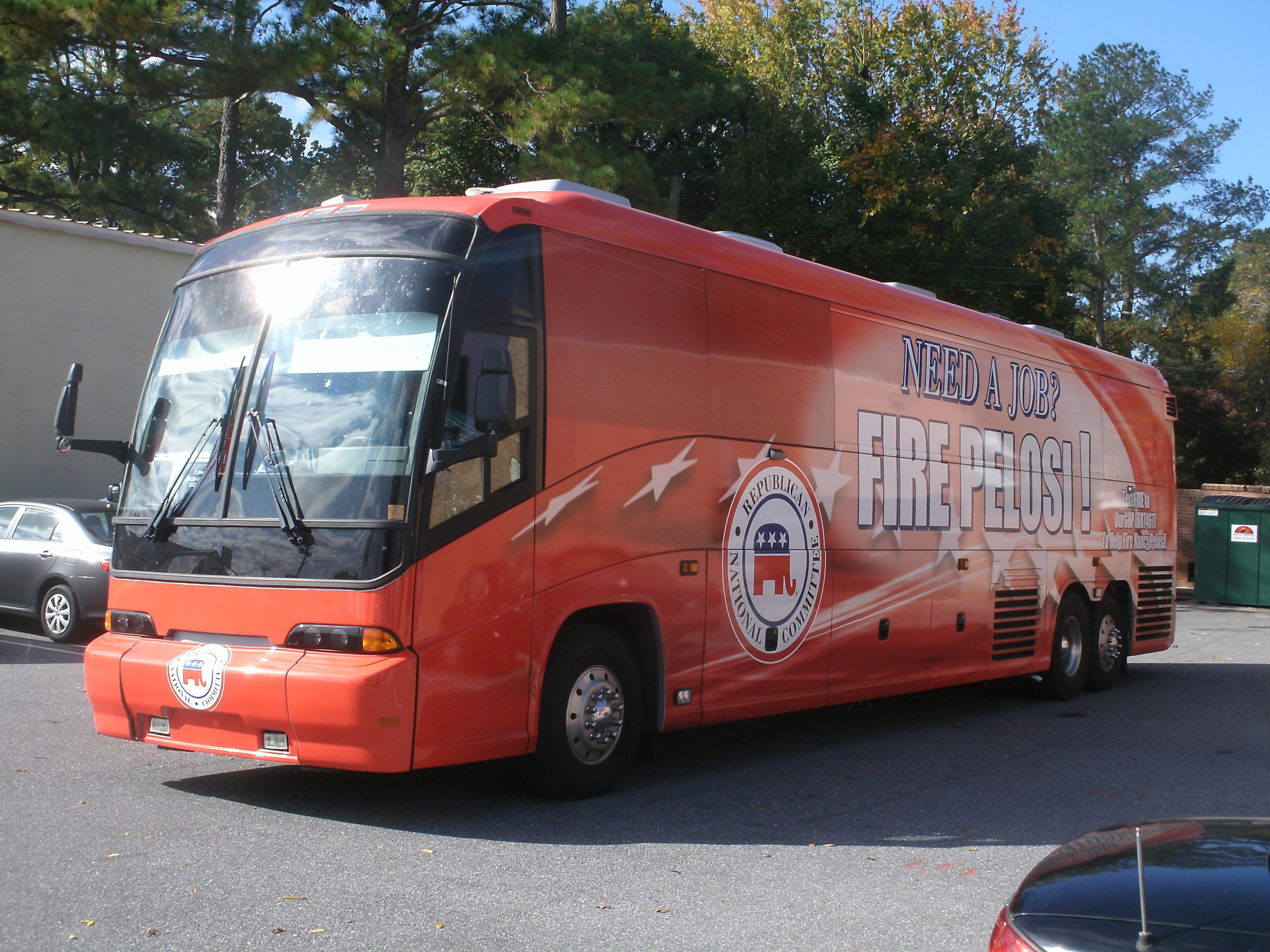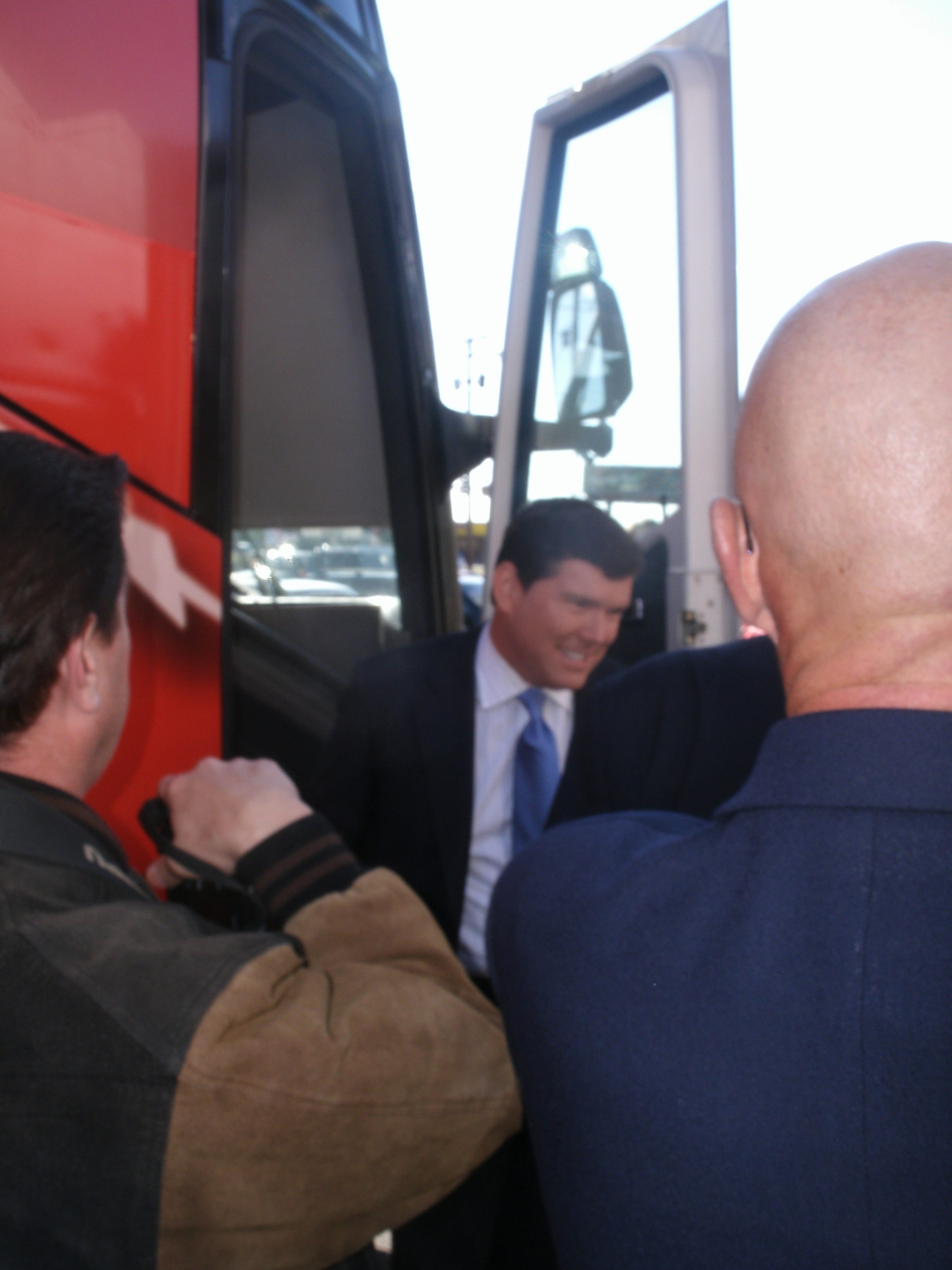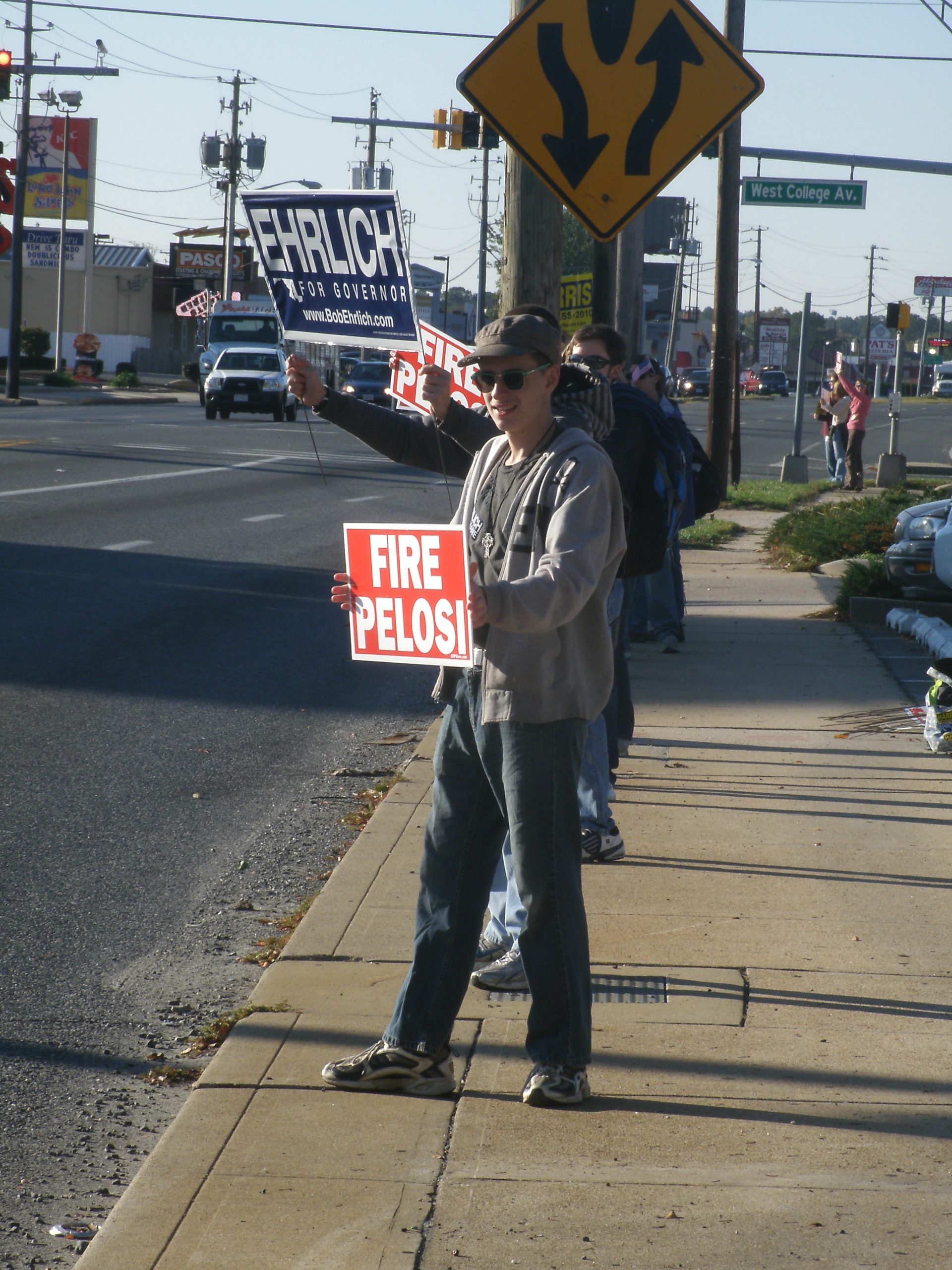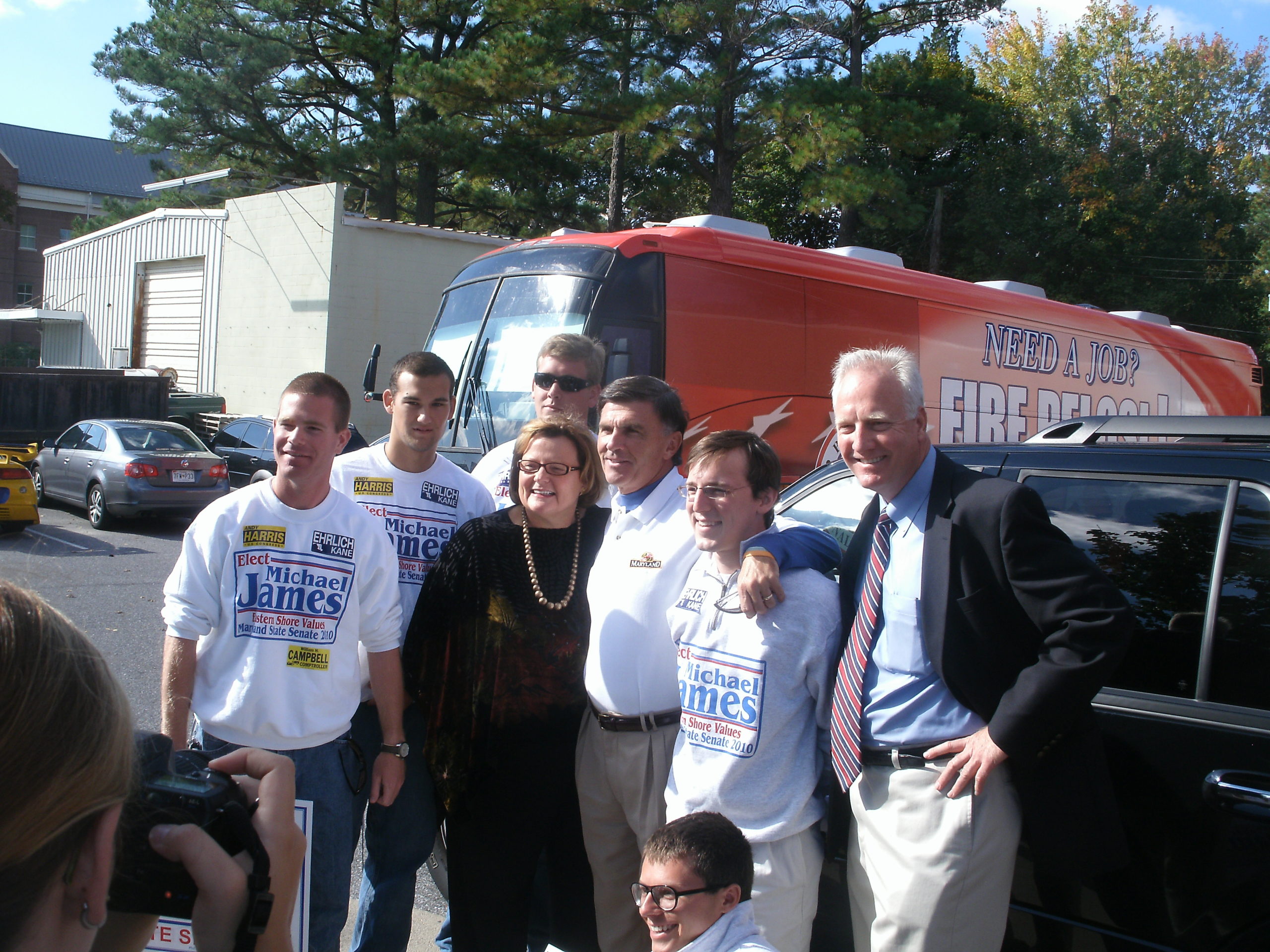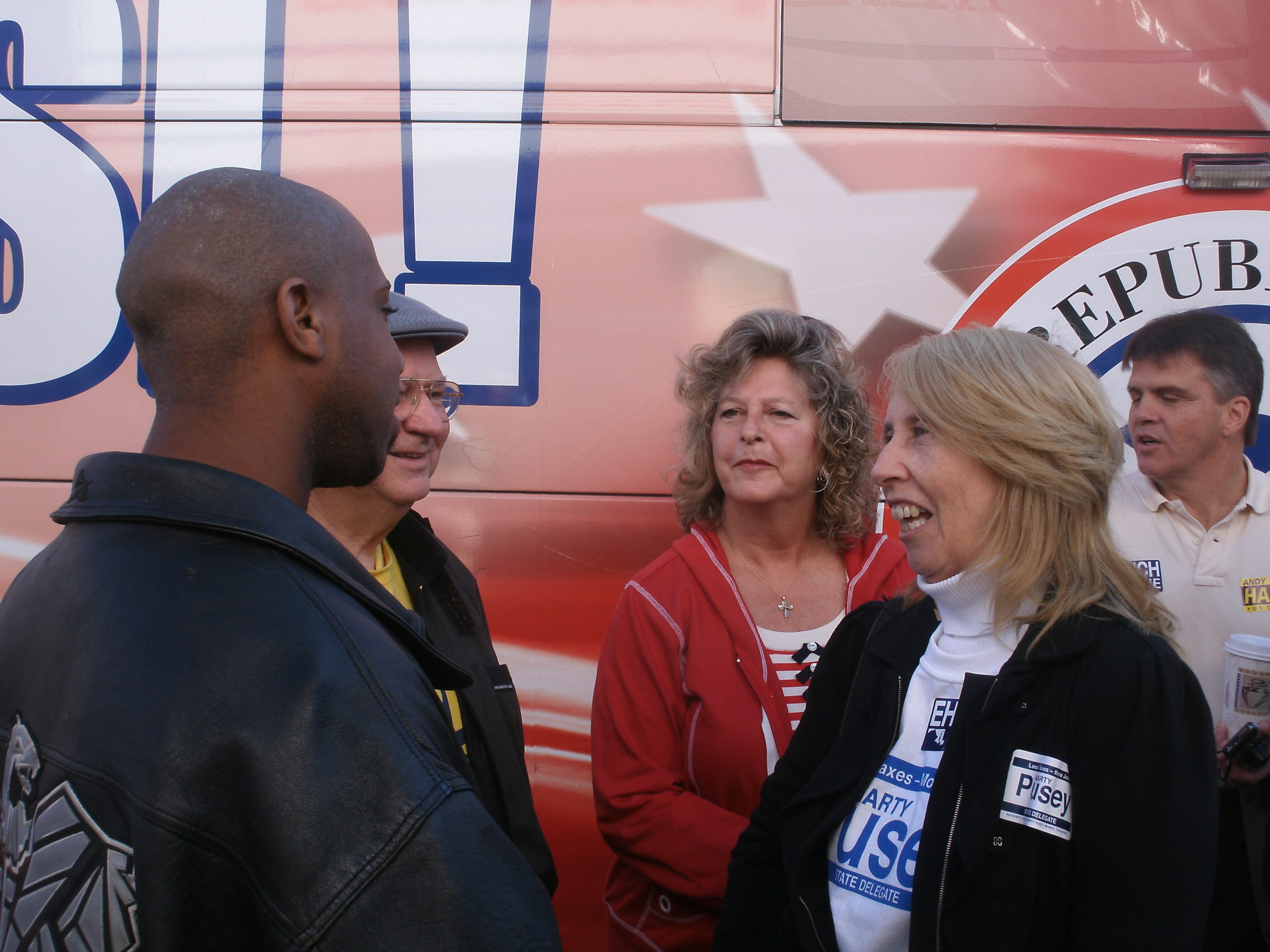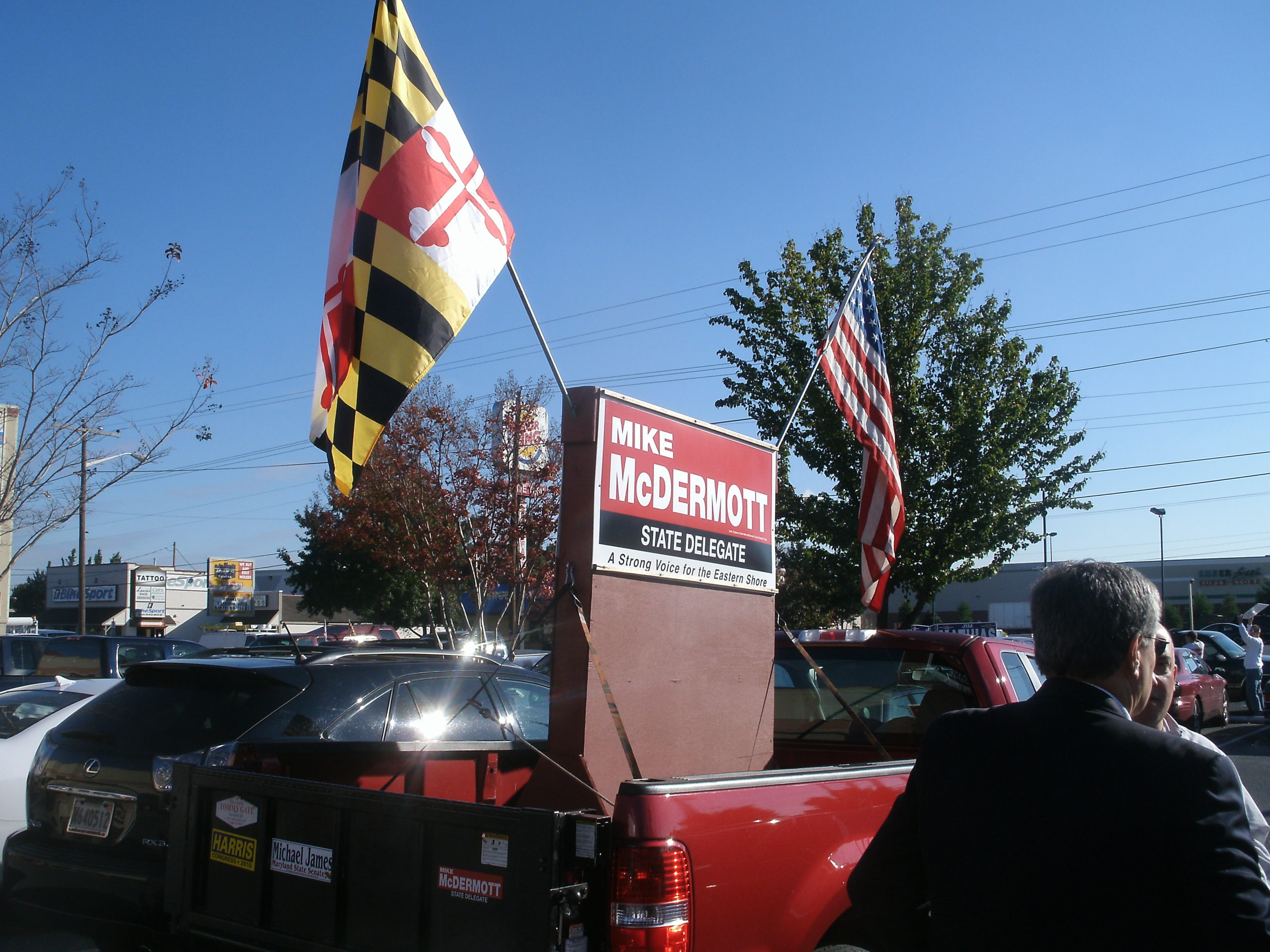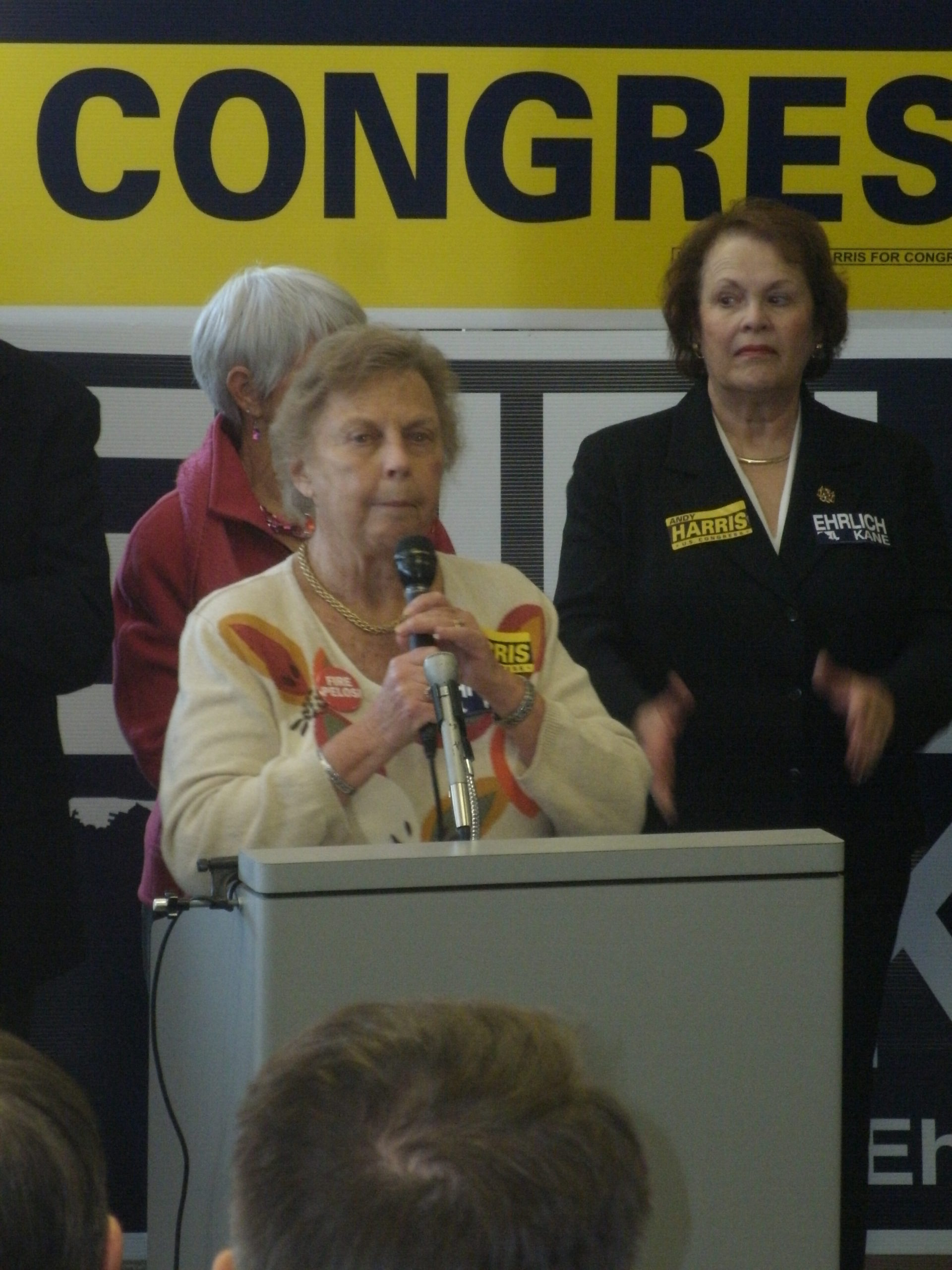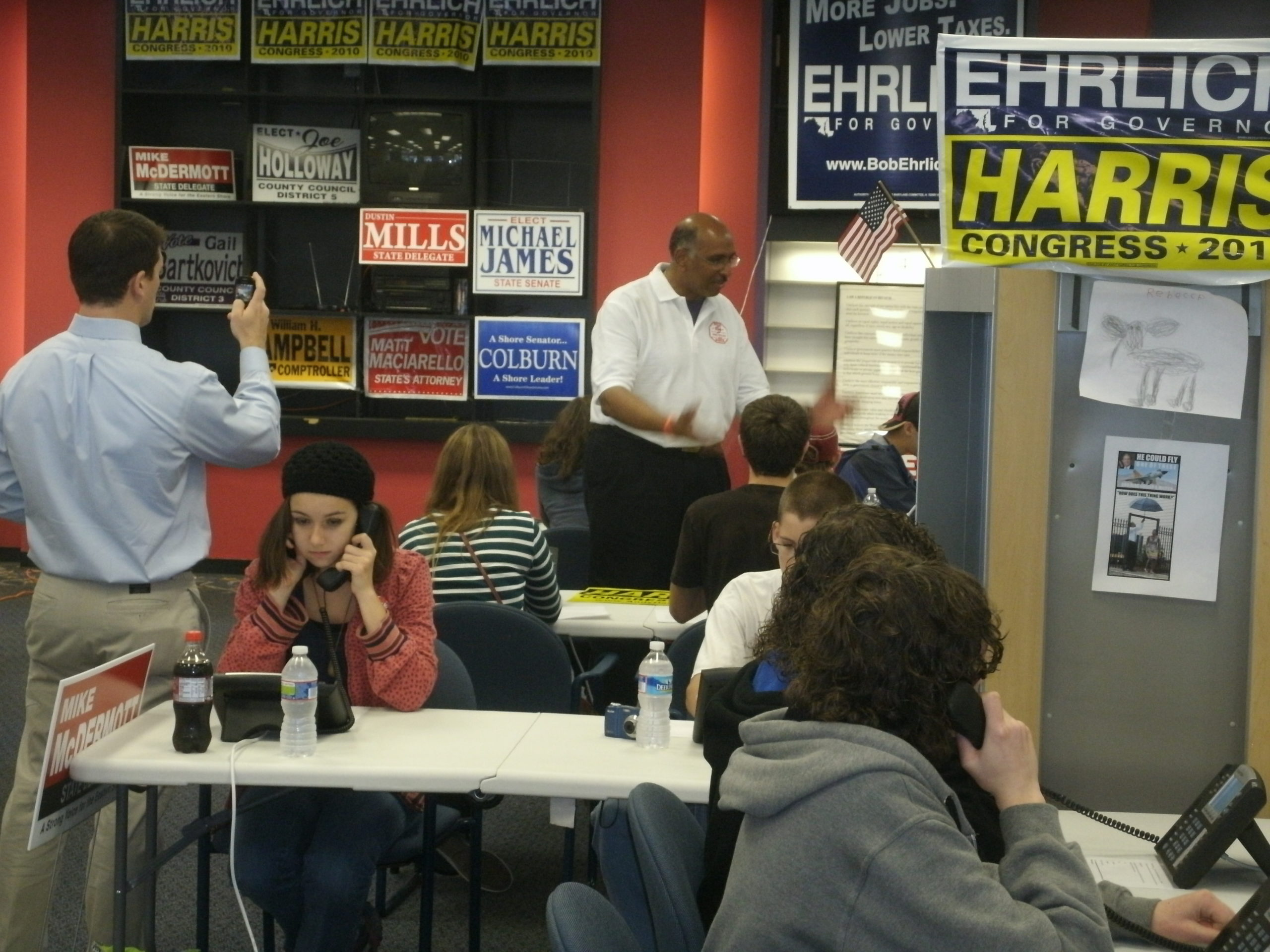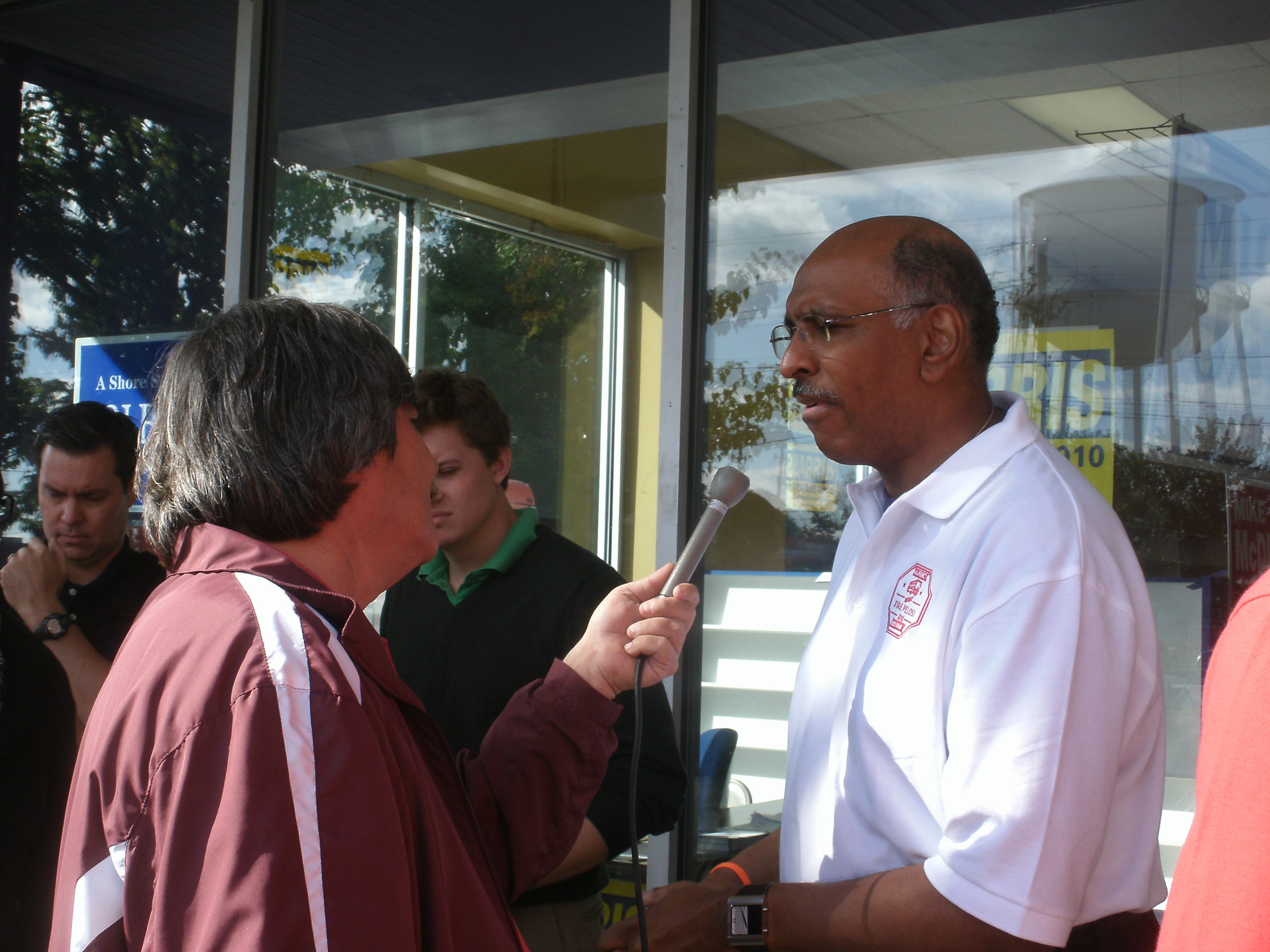By far this was the more interesting of the debates; perhaps it’s because it covered my personal district. But just as a review from my other part:
The group asking was relatively diverse and included local businesswoman Dawn Tilghman, Terrence Lee of WMDT-TV, and Jennifer Cropper-Rines, president of the Coastal Association of Relators (CAR). Susan Parker of the Daily Times served as moderator. After an opening statement, candidates had to answer one question from each panel member and, with six to eight candidates on stage and two minutes allotted, there was really little need to get questions from the audience (hence my first post on the forum last night.)
Because of how the forum was set up, I’m going to evalute each question and answer in turn rather than summarize what each candidate said as a whole. I run the risk of writing this in a more dry fashion via this method but I think it would be more informative. This begins with the opening statements.
Opening statements:
Marty Pusey talked about limiting government and her respect for the other candidates in the race. “I believe strongly in protecting the public dollars,” she stated. Calling the election a “critical point for our country,” she further claimed “our state has an addiction, they raise taxes…we need to send our state to rehab.”
Michael James told the crowd “we need good representation now” and the “budget is in peril.” You raise revenue by creating jobs, and the worst thing the state did was raising taxes. We need a private sector person in office.
Recounting how as a child he built a paper route into a lucrative business, Norm Conway talked about his “work ethic” and how he set a goal to become a member of the House of Delegates.
Adding just a little humor to the proceedings, Mike McDermott talked about how he wasn’t cut out to be a chicken farmer. Instead, he went back into law enforcement and was happy there until he “saw a need” to get involved politically at the local level.
Since he served as Ocean City mayor, Jim Mathias claimed the “stable economic environment” he created helped the town grow. He would “strongly, proudly” represent the lower Shore in the Senate and “make one become 24”, referring to getting a majority in the Senate.
My faith “defines who I am,” said Mike McCready. He also spoke of his work ethic, his agricultural background and experience with MAFOs and CAFOs, and promised regular meetings with stakeholder groups like watermen and farmers.
Gee Williams stated the obvious: “We’re living in extraordinarily challenging times.” Recounting his business experience in the publishing industry and with nonprofits, he ticked off four bullet point items he’d like to accomplish: creating jobs, reducing fees, targeting tax cuts, and streamlining regulations. As a “principled, pragmatic” leader, he tried to paint himself as a centrist: “I reject extremism.”
Charles Otto went over his background and experience with the Maryland Farm Bureau and Farmers and Planters. In a nod to his predecessor, he praised the late Page Elmore by saying “he made a difference” for Somerset residents.
The first question, from Jennifer Cropper-Rines, asked about the possibility of alternate sources of funding for municipalities like a piggyback tax.
Mike McCready stated, “I wouldn’t be in favor of raising it any” and talked about the surplus they had in Somerset.
Similarly, Charles Otto was in favor of “limited” taxes, but the state does play a role.
Michael James would allow it if the voters wanted it, but personally would oppose this. Municipalities needed to watch their spending.
Norm Conway thought municipalities “should have options” through enabling legislation.
To Marty Pusey, “a tax is a tax is a tax.” She would try to have state funding restored first, in order to create as much of a positive business environment as possible and would vote against such measures.
Gee Williams wouldn’t support new revenue streams, since government should live within its means.
Jim Mathias wouldn’t initiate new tax mechanisms, but we needed to build a consensus on taxes with the business community. He also talked about the concept of “local courtesy” and how it would apply to this situation.
More bluntly, Mike McDermott said the power to tax was the power to destroy. Our legislature “understands destruction” but needed instead create a better environment for business.
Terrence Lee used an audience question asking about the education background each candidate had in economics.
In truth, only Marty Pusey and Charles Otto had taken college-level classes in economics, so most candidates cited their real-life experiences.
Mike McDermott talked about balancing his checkbook each month and how Maryland was living outside its means. We had gotten “off track.”
Jim Mathias told us “my degree in economics is the real world” and explained that he vetoed two Ocean City municipal budgets which included tax increases.
Again, Gee Williams spoke of his life experiences running 12 newspapers, working for the State Highway Administration, and various nonprofits. “Life is too complicated” right now and we should lower our expectations until we rebuild the economy.
Besides the college course, Marty Pusey cited her experience with creating budgets and working with the state’s accounting system for doing so.
Norm Conway said that as a youth, “my goal was to make money” – it was real-life economic training. He claimed the state had reduced spending $5.5 billion this term and that his goal was fiscal prudence with social responsibility.
“Maryland’s economics will not work long-term,” countered Michael James. We need to have business profits to create the revenue from businesses that the state needs.
Charles Otto put it simply and eloquently: “You learn to balance a budget when you get a 60 bushel crop and you expected 180.” His more formal economic training came from his agribusiness studies at Virginia Tech.
Mike McCready said that in his life, he set aside 10 percent as a tithe and 10 percent for a rainy day before he even considered which bills to pay. This is “not a time for a weak mind or inexperience” and referred again to lowering Somerset’s tax rate. He also claimed that, “we’re in better shape than the other Lower Shore counties, dollar for dollar” and how tax credits they could afford created or saved jobs at Rubberset and other companies.
Dawn Tilghman asked about the aggressive regulatory climate in the state.
Again talking about quarterly meetings with stakeholders, Mike McCready decried “one size fits all” solutions but supported a concept of the state picking up part of the salaries of people hired off the unemployment rolls. He would work across party lines to find solutions.
Charles Otto believed it was “time to restructure government” and these fines were “extortion.” It was a symptom of a “state government that knows best,” in the meantime “we have problems to solve.”
Michael James warned us we shouldn’t lose local control and needed to eliminate the perception that government is out to get businesses.
It was an “out of line, out of control” situation that needed to be modified, according to Norm Conway. He also blasted as “totally unreasonable” the University of Maryland law school for getting involved in the Hudson farm lawsuit on the environmentalists’ side.
We take away choices every time we pass regulations, said Marty Pusey. Environmental regulations should be “based on real science” and the assault on the poultry industry was “unacceptable.” But my favorite line of the night was when she said for every new law we create two old ones should be removed. That brought a “hell yeah” from me!
Gee Williams agreed with the tenor of the group, saying “they don’t give towns breaks.” While the goals of the Maryland Department of the Environment were noble, the application was unreasonable. “Litigating first and asking questions later is setting back our community,” concluded Williams.
A more educated regulator would help, argued Jim Mathias, yet we need to communicate our strengths and advocated for what we have. Agriculture was a “tremendous asset” to the state, and when we talk about it the governor and his staff listen.
Mike McDermott disagreed strongly, rebutting to Jim that the talk goes in one ear and out the other. Because of one-party rule in Maryland, “we are myopic.” He thought it was funny to hear liberals talk about conservative values. “Don’t tolerate that nonsense,” he said.
Closing statement:
Charles Otto believed part of our problem was the federal government – we are living in a “broke country…it’s time to change.” On the environmental front it was a question of compliance vs. stewardship, and he believed that some of the most recent and draconian regulations needed to be rolled back.
Gee Williams wanted our representative to “sit at the table and not at the back bench.” We needed to elect people who can make government work and disagree respectfully.
“Experience counts,” said Mike McCready, “and being County Commissioner counts for something.” He pointed out that his county was the only local county whose board of education didn’t request a maintenance of effort waiver from the state.
Jim Mathias rested on his “proven record” in securing capital projects and again promised to make one Senator into 24 by working with like-minded Senators.
“This is the election of our lifetime,” Mike McDermott said. “If we don’t see a change (we’ll get) bigger government and more taxes.” It’s not about edifices, but wholesale change from liberal values to conservative values.
Norm Conway “doesn’t consider himself a liberal or a conservative.” He was proud of the credibility he’d earned and believed in One Maryland.
Michael James accused the two incumbent Democrats of “reinventing their records” and asked where they were on sex offender laws before Sarah Foxwell. He promised to follow in the footsteps of outgoing Senator Lowell Stoltzfus.
Marty Pusey expounded on her “unique combination” of experiences and skills, though “we do need a change of culture in Annapolis. She pointed out the low marks business groups gave Conway based on his voting record, and promised to do right by the Maryland Constitution, which she waved a copy of during her close.
One item not used during the first session was the rebuttal. But both Mathias and Conway wanted to rebut Michael James’s assertion they’d voted for tax increases.
Mathias claimed that he’d voted for the House version of one package but it was changed in the Senate before the final vote, when he voted against it. (See below.) Norm Conway added that he voted for the one-cent increase of the sales tax, but half of that was supposed to go to the Transportation Trust Fund – without it, U.S. 113 would not have been dualized nor would future work on Maryland Route 589 (once Ocean Downs is renovated for slots) be on the radar.
Mike McDermott pithily rebutted Conway, noting that over the 40 years dualization of U.S. 113 was discussed they’d done one mile per year, it would already be done.
Michael James wanted to rebut Conway and Mathias, but moderator Susan Parker of the Daily Times denied his request, saying he’d made the original point. Fellow blogger G.A. Harrison commented from the crowd on the unfairness of that ruling but it stood. It ended a forum that became heated and contentious at the end.
My take:
First, as a service to readers, Mathias is correct that he voted against the tax bill (SB2) that became law in 2007. (The fiscal note explains the provisions which changed pretty well.) However, many of the same provisions were present in the House bill (HB2) that Mathias voted in favor of. (It also has a fiscal note.) Conway voted for both versions (along with the sales tax increase of HB5 that Mathias voted against), so his objection came from the substance of the legislative package as a whole.
It’s obvious that we may have a good cop-bad cop scenario here among the Republicans. McDermott and James are very forceful in painting their Democratic opponents as liberals, and here’s why – they are liberals! Just look at their voting records.
But Marty Pusey avoided being as confrontational and that may score her some points. In many respects she’s the most conservative of the bunch and her two-for-one line was my favorite.
Again, the Democrats who aren’t in office did their best to talk about crossing the aisle and bipartisanship, but I liked how Mike McDermott slapped that argument down. There are very few Democrats in Annapolis who give Republicans the time of day, and the limited number of instances where local Democrats are right is akin to a stopped clock being right twice a day – any other time it’s far from reliable and perhaps even detrimental.
There’s a reason that I get day after day of mailings from Jim Mathias explaining how, despite his Baltimore roots, he’s an Eastern Shore conservative at heart (today it’s being against “liberals” and for the death penalty.) Annapolis Democrats wouldn’t be backing him if he weren’t useful to them – they know the score and the fact they need Republicans to have fewer than 19 Senate seats to keep them meaningless. He will be no such thing as a loose cannon.
And Gee Williams will have to be happy with his back bench even if he wins – the real Democratic power in Annapolis represents the urban areas. We all know this.
Indeed, we can do better and last night’s forum showed why we need conservative leadership from the Eastern Shore.


